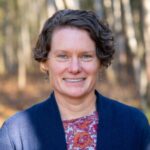A State House committee has eliminated funding for a state program that helps medical professionals repay their student loans if they serve poor or rural patients. It’s called the SHARP-II program and clinics say it’s an essential tool to convince physicians and other medical professionals to care for patients in under-served communities.
Kim Cohen has a tough time recruiting physicians. As executive director at the Anchorage Neighborhood Health Center, the pay she can offer her doctors is limited. They can earn 50 percent more in the private sector.
“A lot of people that want to help the poor and want to go into community health have large student loans,” Cohen said. “So one of the things we can offer them- we can’t give them a high salary, is we can help them pay off their student loans through this program.”
A House finance subcommittee cut $1.2 million for the program, eliminating next year’s funding. If the cut goes through, a doctor at Anchorage Neighborhood Health Center, who was just approved for the program, would lose his spot along with 38 others who were supposed to start receiving loan repayment.
Representative Mark Neuman, a Republican from Big Lake, is responsible for making the cut. He says it wasn’t an easy decision, but the budget needed trimming.
“The health and social services is a difficult budget and when you get into years when you just don’t have money to cover your costs, you’re forced to do reductions,” he said.
Neuman says he felt better about eliminating funding for a few programs, like SHARP, than making small trims to many more. And he says SHARP was a more appealing target than funding that would go to serve seniors or foster kids.
“I think I read some notes here that the average practitioners was getting almost $30,000 a year, that’s almost a lot of peoples yearly salary and when you have to start reducing budgets, where do you start?” Neuman said. “They’re all good programs, we’d like to support them all but the state just does not have the money.”
And Neuman points out providers will still be eligible for the SHARP I program, which also repays loans and is partly funded by the federal government. But Tom Chard who is executive director of the Alaska Behavioral Health Association, says the federal program is not meeting the needs of Alaska. Chard is on the committee that decides which medical professionals can participate in the program.
“We as a state said, look, we think we can design parameters to better meet our outcomes here in state and we’re willing to put a little bit of money in to match that,” Chard said.
The federal SHARP program is limited to providers working in rural areas of Alaska. Chard says the state program recognizes urban areas in the state are also struggling to attract medical professionals to work with low income patients. Chard thinks the program is a bargain.
“$1.2 million, the proposed reduction amount, is a lot of money, but we’re going to actually save a ton of money through putting positions into these places that are otherwise hard to fill, very hard to recruit for, otherwise would go vacant or be filled by a temporary position,” Chard said.
It costs clinics a lot more to hire temporary doctors to see patients.
At the Anchorage Neighborhood Health Center, Kim Cohen says she feels like she’s been sucker punched. When Governor Parnell declined federal funding for Medicaid expansion, he said clinic’s like Cohen’s would be able to provide a safety net for patients who would not be eligible for Medicaid.
“First they don’t expand Medicaid, and that’s hard enough because 42 percent of my population at the Anchorage Neighborhood Health Center do not have insurance,” Cohen said. “And now they’re taking away my ability to help pay for my physicians by repaying their student loans so now I’m like how are we supposed to be the safety net of the community if we don’t have doctors to provide for the patients we’re supposed to be seeing.”
Parnell kept the SHARP-II funding in his version of the operating budget. The Senate could restore funding for the program when it begins work on the budget. If that happens, the House and Senate would work out their differences in conference committee.
This story is part of a reporting partnership between APRN, NPR and Kaiser Health News.
Annie Feidt is the broadcast managing editor at Alaska Public Media. Reach her atafeidt@alaskapublic.org. Read more about Anniehere.





